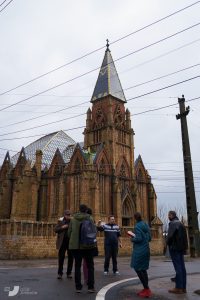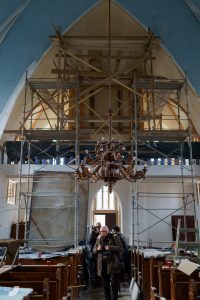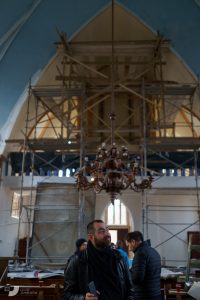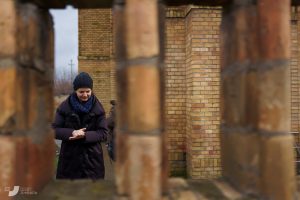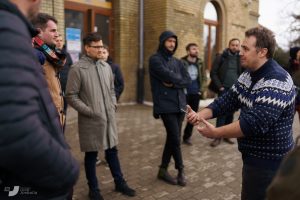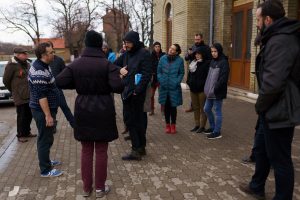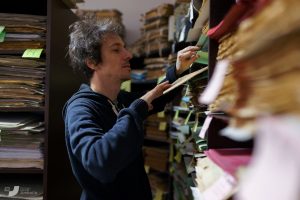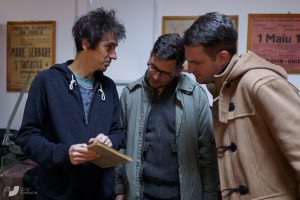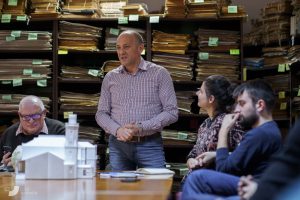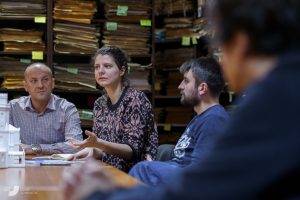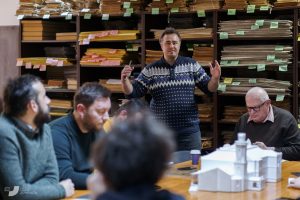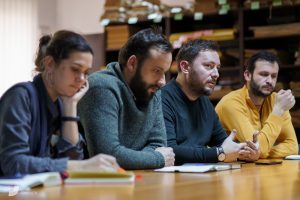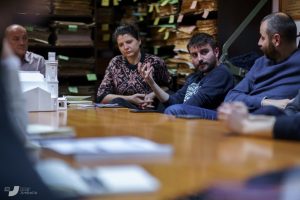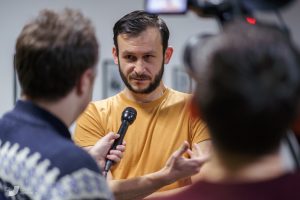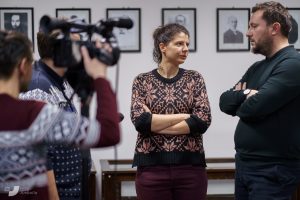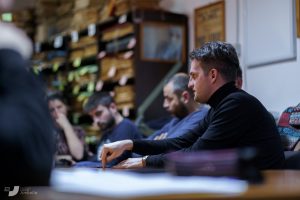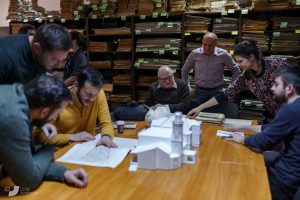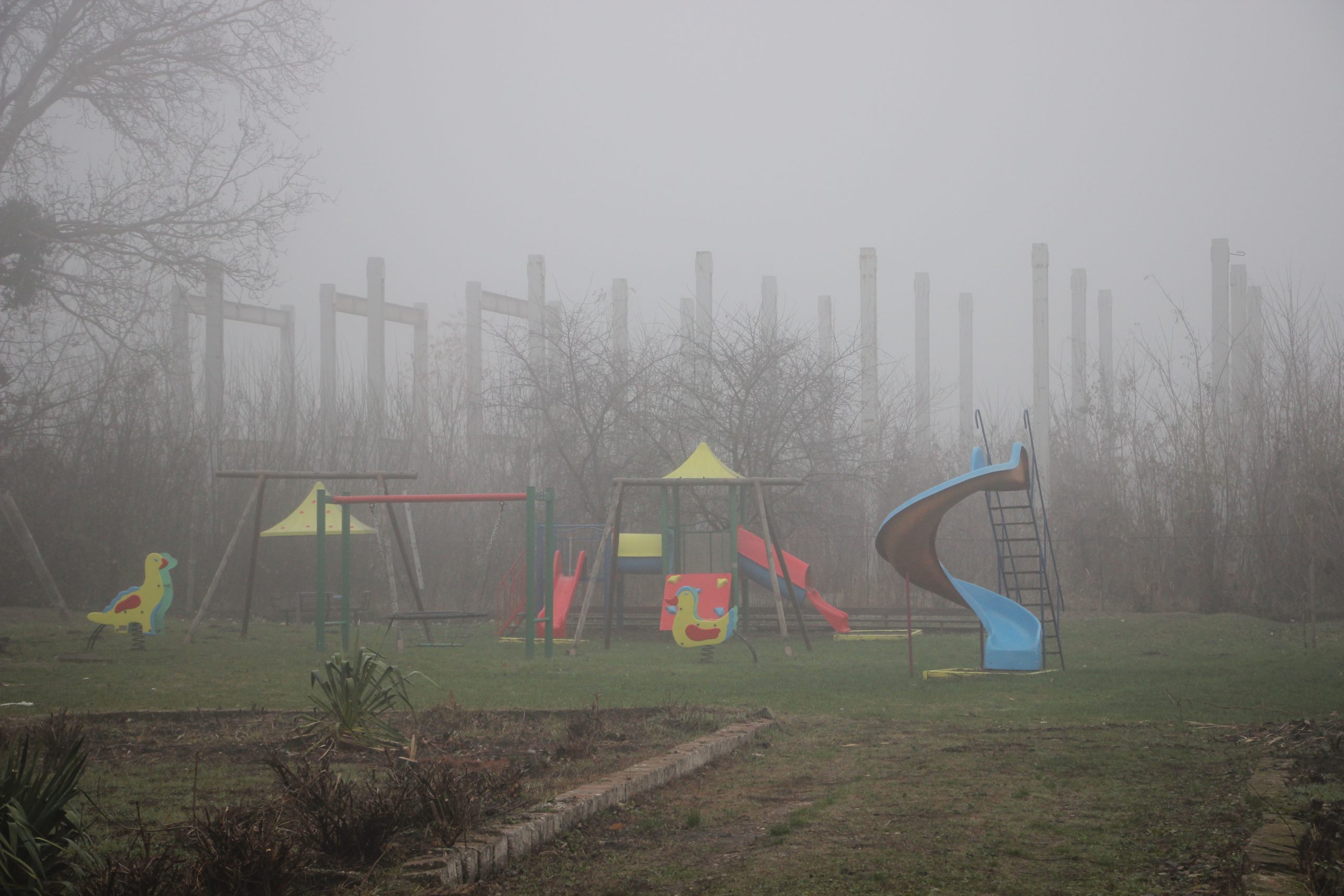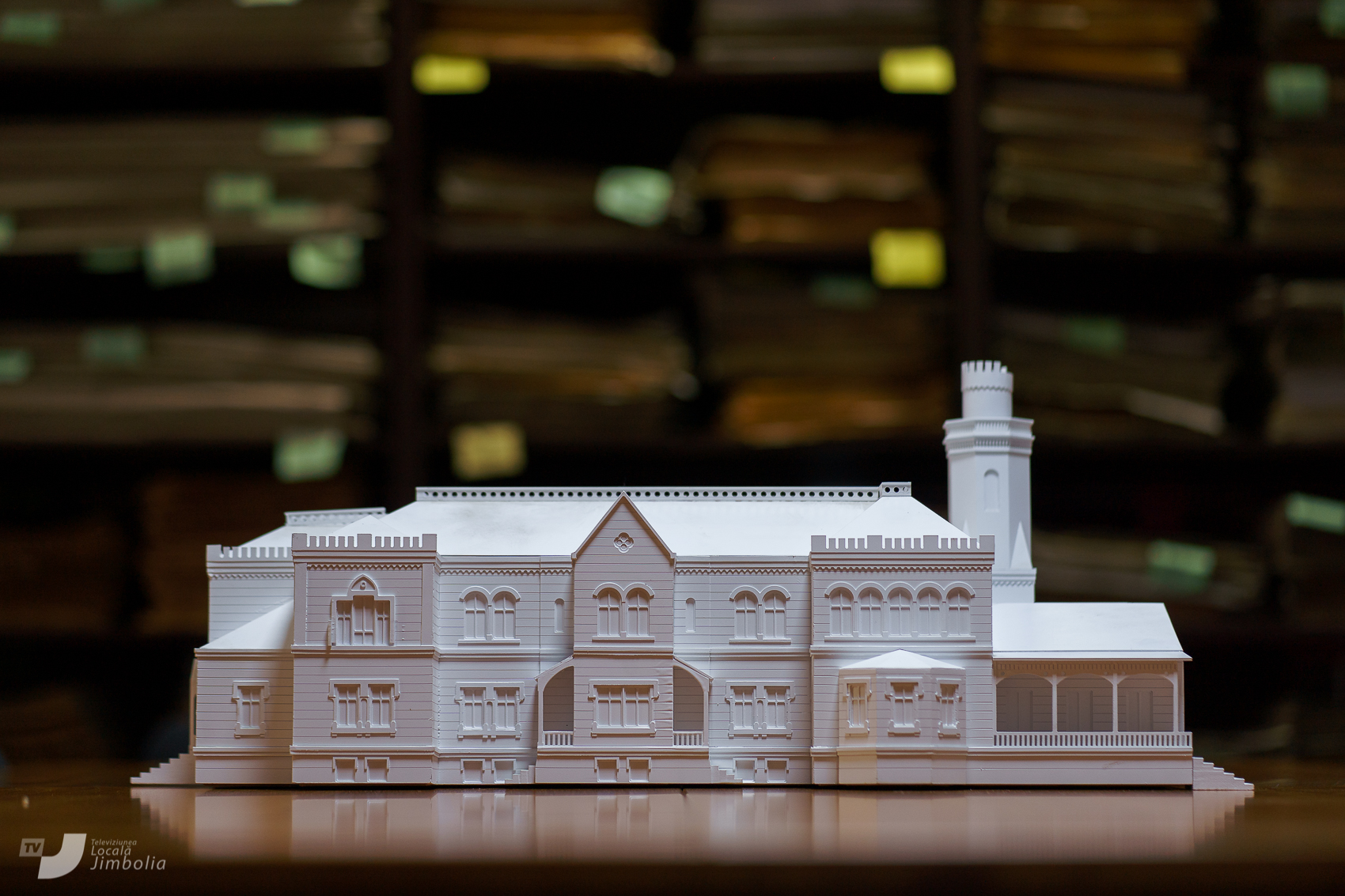
SCOUTING THE FRONT- Informal Transnational Meeting in JIMBOLIA
In preparation of Triplex Confinium’s first summer school, professors and researchers from neighboring partner universities met in Jimbolia at the end of February, just in time before the COVID 19 lock down was enforced in all partner countries.
Looking at a brighter future than the one currently shaping up, the informal work meeting tackled several project objectives; the preliminary formulation of the exploration teaching modules, the schedule and structure of the summer school and a few possible case study scenarios.
The first part of the day was dedicated for the exploration module as each team had time to further investigate Jimbolia and its surrounding area. The team reconvened for a guided tour organised by Sergiu Petru Dema- local cultural manager and promoter for both the Press Museum and the Culture House. In this respect the Triplex Confinium organising team wishes to express their gratitude for the warm welcome and expert guidance received from our future Jimbolia partners: the people involved in The Press Museum, The Jimbolia Culture House, TV Jimbolia, and last but not least The Mayor’s Office.
The guided tour through Jimbolia revealed furthermore the hidden histories and unwritten stories of the place. Partners learned about the tumultuous story of the brick factory and the landscape that it generated, its economic impact in the area and role in urban development of Jimbolia- visible both within the spatial pattern as well as in the architectural morphology of The Futok workers colony. We marveled at the beauty and complexity of the Futok brick church, revisited the histories surrounding the once vital rail station, and walked alongside the main street’s two stories palace houses recollecting some of the histories of their owners and inhabitants.
For the second part of the day the academic team was welcomed by Mayor Darius Postelnicu in the archive room of local Press Museum. As one of the only two museums of its kind in Europe, the tiny Press Museum is truly a cultural gem, acting as Jimbolia’s main cultural anchor. In an age when information has been completely subjugated by digital streams and online storage spaces, the Jimbolia museum is a invaluable archival repository for all forms and formats associated in the last two centuries with the written press.
Surrounded by these written ghosts, by the histories, stories and reports that shaped the imagination and realities of Jimbolians for the last century, the academic partners discussed their own visions for this place, explaining their proposed methodology of approach and objectives within the common territorial research. From large scale visions, looking at geographical systems to smaller focal points of interest, the proposed research and teaching activities set the basis for our future common curriculum. These draft proposals will be further tested and discussed in our next transnational meeting in Novi Sad. Since this has been postponed as a result of our current global predicament, we will continue our research work, hoping that this crisis will also have some positive outcomes for humanity at large.
Until we will be able to reconvene on site, in Jimbolia, we will remain visible online, as we will follow up with a series of blog posts presenting the partners through their works, projects and tutors. Stay safe and follow us!
